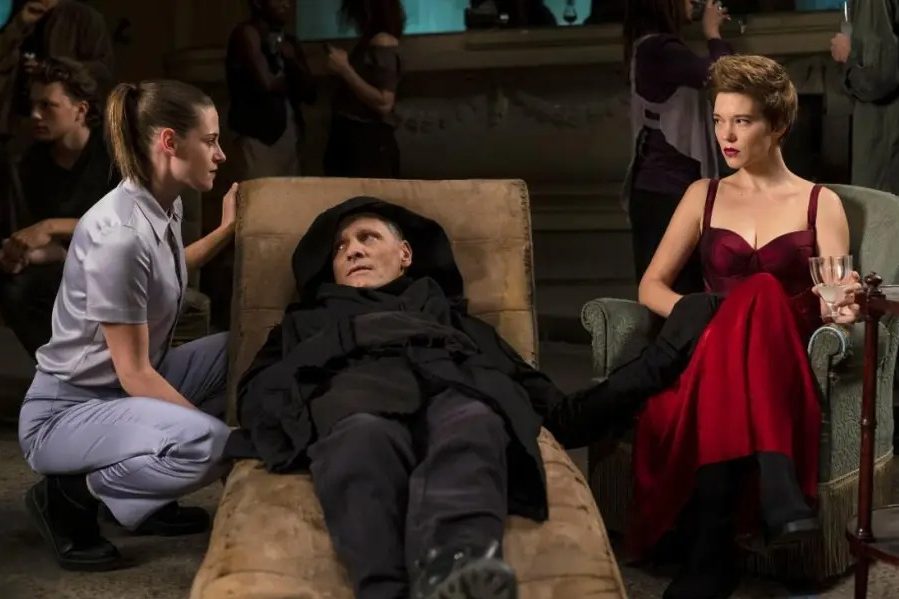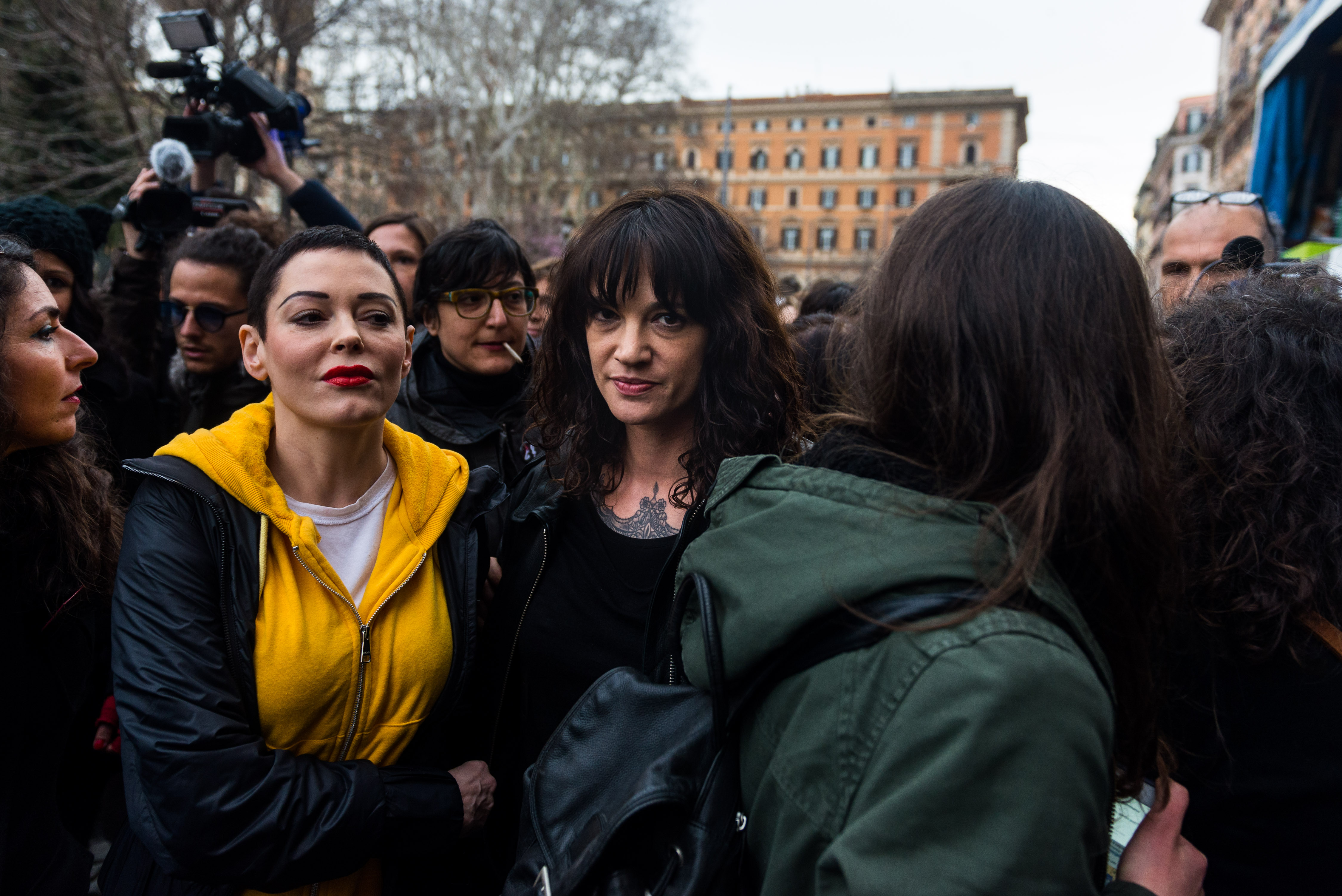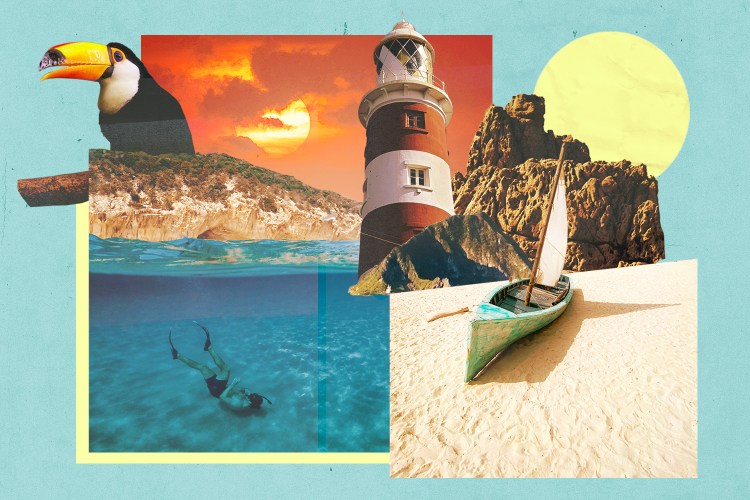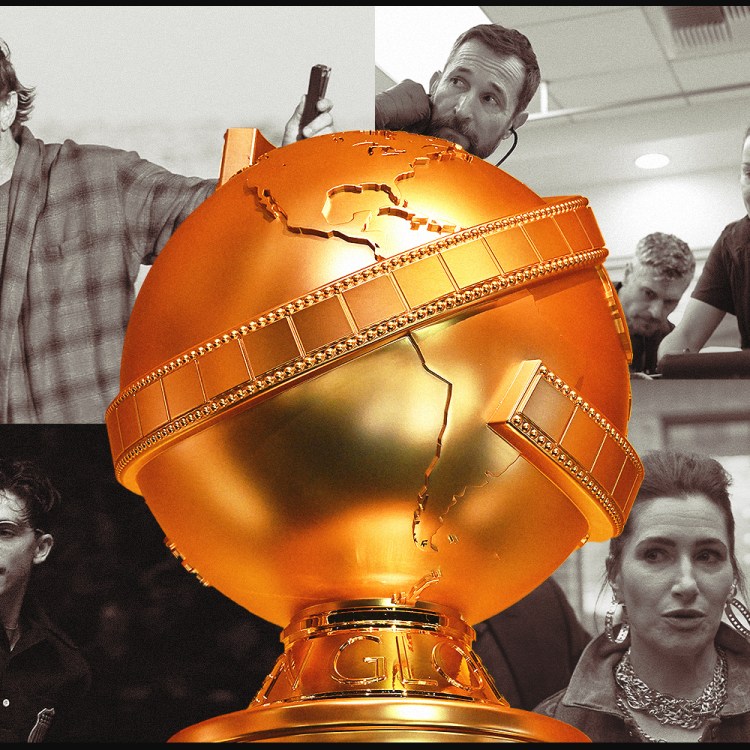If anyone is a master of making twisted movies that leave you terrified, it’s Dario Argento.
The Italian filmmaker has created over 30 films since his start in 1970, and now, his work is being showcased in a retrospective at the Lincoln Center in New York for Beware of Dario Argento: A 20-Film Retrospective, from June 17 to 29.
The retrospective is co-presented by the Film at Lincoln Center and Cinecittà, a film studio in Rome that restored 17 of Argento’s films in 4K. Argento, now 81 years old, will be in attendance for some of the screenings in New York.
Argento is a pioneer of the psychological thriller, and he set the bar for how intelligent a horror movie should be, going beyond your typical gore. It isn’t just blood and suspense but using Alfred Hitchcock-esque camera compositions to tell the story through clever suggestions (alongside some gore and mind-bending plot twists, too, of course).
He’s best known for his supernatural horror film Suspiria, which he directed in 1977, based on an eerie German dance school that possesses its students and teachers. (In 2018, Luca Guadagnino directed a remake of the film starring Dakota Johnson and Tilda Swinton.)
Argento helped popularize the pulpy “giallo” subgenre of horror filmmaking and is often called “the master of horror films.” His most well-known films include The Bird with the Crystal Plumage from 1970, his first film, and Deep Red from 1975. Born in Rome to a film producer father (Salvatore Argento) and photographer mother (Elda Luxardo), he started out as a film critic in high school and then got into screenwriting, working on Sergio Leone’s Once Upon a Time in the West in 1968.
Once he started making films of his own in the 1970s, he garnered global success. Many filmmakers today count him as an influence — like John Carpenter, James Wan and George A. Romero, whom he collaborated with on Dawn of the Dead in 1978. His daughter Asia Argento has acted in several of his films, like Trauma from 1992, The Mother of Tears from 2007 and Dark Glasses, his latest film which makes its North American debut in New York City on June 19.
The latter is his first effort since his last film Dracula 3D was released in 2012. He also acted in Gaspar Noe’s 2021 film Vortex, a psychological drama about an ailing couple, where he improvised the role. It was his first acting role, besides his smaller appearances in his own films, whether it’s acting as the priest in 1966’s Scusi, lei è favorevole o contrario?, as the narrator in Inferno from 1980 or as the murderer’s hands in Deep Red from 1975.
He runs a horror memorabilia store in Rome called Profondo Rosso, and he recently was granted the Lifetime Achievement Award at 74th Locarno Film Festival in Switzerland. Argento spoke on Zoom with InsideHook about his upcoming retrospective in New York, his favorite photographer and his advice to young filmmakers.
InsideHook: Are you looking forward to coming to New York for this film retrospective?
Dario Argento: I’m very honored. Not many people have received this type of honor at the Lincoln Center, not to mention that all my films have been restored.
You’re going to be coming to New York for this retrospective. What is your favorite thing about New York?
I’ve spent a lot of time in New York doing casting. I wrote one of my films to be set in New York, Inferno. It’s always a pleasure to return because it’s so filled with culture. There are so many people, important people in worlds of art and culture. It’s a pleasure to spend time with these people. Every time I come back, I am completely happy.
Do you have a favorite Italian restaurant in New York?
In all honesty, there are many Italian restaurants that are good in New York, but what I prefer are the Asian restaurants, the Japanese restaurants in New York.
What was the process like restoring these 17 films with Cinecittà?
I wasn’t directly involved in the restoration; I saw it when it was half done. They did a good job. With The Cat o’ Nine Tails, they did a fantastic job.
Your latest film Dark Glasses is making its North American debut at the Lincoln Center. What was it like working with your daughter Asia?
Asia is not the lead in the film, Ilenia Pastorelli is, but the collaboration with her was different. She was very important as a producer on the film. She was the one who found the script. It was a script I had written many years ago. The financing fell through on it, so it wasn’t going to be made. So I put it in a drawer and forgot about it. One day, Asia, who is writing a memoir, was searching for different documents and asked if she could go through my drawers and files. I said, “Well sure, why not?” She found the script and read it and thought it was beautiful and said, “Dad, we should redo it.” I reread it and I agreed with her, I liked it. So during the lockdown, we updated the script a little bit and presented it to the producers. They were very enthusiastic about it, and that’s how it got made.
What was the biggest challenge in shooting the film?
When I make a film, it’s not a challenge, I just go by instinct to guide me. I just told the story of a Chinese girl who is living in a room with violence, strange things, strange people. It gave me a lot of satisfaction. I have to say, it’s one of my best films. [The film is coming out in the U.S. in October].
What did you learn from Alfred Hitchcock? I know you have admired his work.
What I learned from Hitchcock mainly is how fundamental the camera is. What the story is that the camera tells, is the film. The camera has to have its own soul, really. Its own psychology. It shoots a film psychologically; it tells stories with great depth. For example, Hitchcock was a master at psychoanalysis. Look at the way he shot the dream sequences; for me, he really is a great master.
On the note of the camera, do you have any favorite fine art photographers?
Nowadays, with digital photography, there are many good artistic photographers. I myself come from a family of photographers. My mother was a very well-known photographer of the 1950s and 1960s. She specialized in photos of women. So as a child, I would see her shooting. I saw how she arranged lighting and did makeup. I learned a lot from her. It’s no accident that the main characters for many of my films are women.
I loved your acting role in Vortex. Did you enjoy acting and working with Gaspar Noe, as a director?
Actually, when Gaspar proposed the part to me, to be an actor in the film, I just said no. I didn’t feel like being an actor. I’m a director. But when he explained what the film was about and that the film was improvised, there was no script for it, it got me thinking that after all, I am a child of neorealism, of Roberto Rossellini. They used to shoot just a man on the street, and the acting is so great because it’s so pure. So true. In reality, I wasn’t an actor; I just played myself. The lead is a film critic. I myself was a film critic. He wrote an essay on dreams in cinema. I also did that. The truth is, I didn’t act. I just played myself. In a way that I could tell the story of myself.
I read you only took the role under one condition — your character had to have a mistress on the side. Is this true?
Yes, it’s true.
Why?
To make the character a little bit more adventurous.
I feel like not many people ask you about comedy. Is it true you’re a comedy fan? If so, who are your favorite comedians?
I am interested in comic films. But I’m more interested in French comedy; they do an excellent job at it. I’m passionate about action films. What I love about French comedy is the style in how they tell the comedy. It’s very well done. There’s a lot of culture behind it.
Looking back on these films that will screen at the Lincoln Center as part of your retrospective, they tell the story of your fight against censorship over the years. Have the bureaucracy and conservative laws changed?
Yes. I think the situation is much better; it almost doesn’t exist anywhere in the world in Italy. We haven’t had censorship for many years here. It’s a great victory because for many years, I had to fight censors in many countries. Especially in France, England and the U.S. Ever since, censorship has been abolished. I’m happy because I can make a film as I like, as it comes to me, my own style and according to my own inspiration.
Do you have plans to direct another film?
Yes, the French have offered me a film. But I have to think about it. I have a lot of commitments right now. In this retrospective, after New York, it’s another one in Paris. After these commitments, I can set my mind to these things.
What advice do you have for young filmmakers today?
Yes [laughs]. I want to say this: If you want to make movies, you must learn a lot about movies. There is no school that can teach you this. You have to see many films, hundreds. This is the only way you can learn how to make movies.
This article appeared in an InsideHook newsletter. Sign up for free to get more on travel, wellness, style, drinking, and culture.























